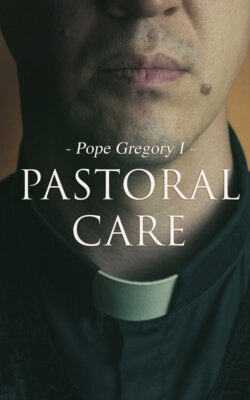Читать книгу Pastoral Care - Pope Gregory I - Страница 6
На сайте Литреса книга снята с продажи.
Chapter II.
ОглавлениеTable of Contents
That none should enter on a place of government who practise not in life what they have learnt by study.
There are some also who investigate spiritual precepts with cunning care, but what they penetrate with their understanding they trample on in their lives: all at once they teach the things which not by practice but by study they have learnt; and what in words they preach by their manners they impugn. Whence it comes to pass that when the shepherd walks through steep places, the flock follows to the precipice. Hence it is that the Lord through the prophet complains of the contemptible knowledge of shepherds, saying, When ye yourselves had drunk most pure water, ye fouled the residue with your feet; and My sheep fed on that which had been trodden by your feet, and drank that which your feet had fouled (Ezek. xxxiv. 18, 19). For indeed the shepherds drink most pure water, when with a right understanding they imbibe the streams of truth. But to foul the same water with their feet is to corrupt the studies of holy meditation by evil living. And verily the sheep drink the water fouled by their feet, when any of those subject to them follow not the words which they hear, but only imitate the bad examples which they see. Thirsting for the things said, but perverted by the works observed, they take in mud with their draughts, as from polluted fountains. Hence also it is written through the prophet, A snare for the downfall of my people are evil priests (Hos. v. 1; ix. 8). Hence again the Lord through the prophet says of the priests, They are made to be for a stumbling-block of iniquity to the house of Israel. For certainly no one does more harm in the Church than one who has the name and rank of sanctity, while he acts perversely. For him, when he transgresses, no one presumes to take to task; and the offence spreads forcibly for example, when out of reverence to his rank the sinner is honoured. But all who are unworthy would fly from the burden of so great guilt, if with the attentive ear of the heart they weighed the sentence of the Truth, Whoso shall offend one of these little ones
which believe in me, it were better for him that a millstone were hanged about his neck, and he were drowned in the depth of the sea (Matth. xviii. 6). By the millstone is expressed the round and labour of worldly life, and by the depth of the sea is denoted final damnation. Whosoever, then, having come to bear the outward show of sanctity, either by word or example destroys others, it had indeed been better for him that earthly deeds in open guise should press him down to death than that sacred offices should point him out to others as imitable in his wrong-doing; because, surely, if he fell alone, the pains of hell would torment him in more tolerable degree.
